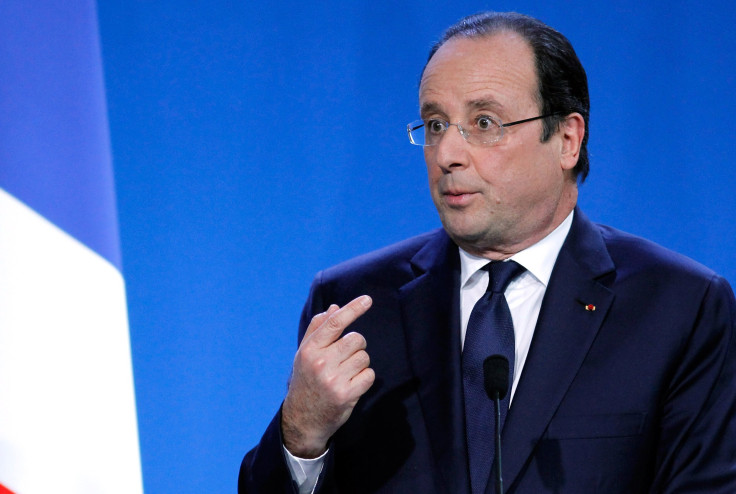Hollande: Islam Is A Problem, Religion Can Be Dangerous And There Are Too Many Migrants, French President Says

In an interview with two reporters from France’s top newspaper, French President Fran ç ois Hollande revealed a view of Muslims that surprised many as staunchly xenophobic and more likely to align with the nation’s far-right Front National than the incumbent’s center-left French Socialist Party.
France has “a problem with Islam,” he told Le Monde investigative journalists G é rard Davet and Fabrice Lhomme for a book of interviews with Hollande titled, some might say rather appropriately, "Un pr é sident ne devrait pas dire ç a…", or "A President Should Not Say That…" “I think there are too many migrants, too much immigration that shouldn’t be there.”
The president, who has been in office since May 2015, then backtracked somewhat, adding, “It’s not Islam that poses a problem, in that sense that it would be a religion that would be dangerous in itself, but because it wants to affirm itself as a religion in the [French] republic. Then, what poses a problem is if the Muslims don’t denounce acts of radicalization, if the imams behave in a way that is against the republic.”
While the source of the comments shocked some, France has made headlines in the past few years for controversial policies targeting Muslim culture. Last summer, police in towns along France’s southern coast fined women for wearing the so-called “burkini,” a swimsuit that offers full body coverage. And two years ago, a European court upheld a countrywide ban on wearing the niqab, or full-face veil, in public spaces.
The country has also suffered several major attacks by the Islamic State terrorist group in the past year, most notably the Nov. 13, 2015, Paris shootings and suicide bombings that killed 130 people, and the attack by a truck driver in Nice, who killed dozens when he drove straight into a large crowd at a Bastille Day celebration.
Of the 28 European Union member states, France reported the third-highest number of immigrants entering its borders in 2014, with just under 400,000, according to Eurostat. While France was fifth on the list of EU nations with the largest numbers of non-nationals as residents in 2014, with 4.4 million, and fourth among countries with the highest number of citizenship acquisitions, with more than 105,000, it was second in terms of highest increases in citizenship acquisitions, with a jump of 8,300 between 2013 and 2014.
Like many of its fellow EU member states, France has seen a rise in the popularity of its conservative extremist party, the Front National. In December’s regional elections, the group, led by Marine Le Pen and shaped by policies of security, nationalism, anti-immigration and anti-Islam, won 28 percent in the local elections, up from 11 percent five years earlier.
This is not the first time Hollande, a member of the Socialist Party, has aligned with the far-right. In a presidential election runoff with former President Nicolas Sarkozy in 2012, after Le Pen gained 17.9 percent of the first round vote, Hollande promised voters he would uphold the ban on women wearing veils in public and would take a harsher stance on immigration. Hollande, France’s first Socialist president in 17 years, ran on a platform of mainly economic policies, including high taxes for the wealthy, balancing the country’s budget and creating more state-funded jobs.
© Copyright IBTimes 2025. All rights reserved.




















